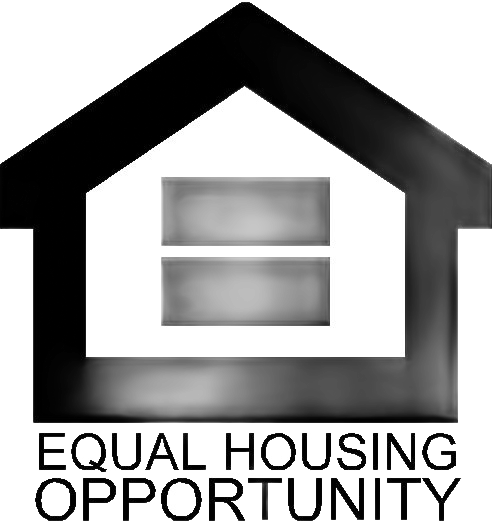What is the Difference Between a Conventional Loan and FHA?

If you're planning to buy a home, you'll probably come across two major types of home loans early on: FHA loans and conventional loans. Both are popular, but they work differently. Understanding how each one functions can help you make better decisions and avoid unnecessary costs or complications.
This guide covers the basics, including what you should know about conforming loans, non-conforming loans, down payment requirements, and even how to qualify for zero down FHA home loans.
A conventional loan is a home mortgage that is not insured or guaranteed by the federal government. These loans are issued by private lenders such as banks, mortgage companies, and credit unions. Because there is no government backing, these loans usually have more strict eligibility criteria.
You might also hear these referred to as a conventional mortgage, conventional financing, or a conventional home loan. These are all just different ways of saying the same thing.
A conventional loan can be a great choice if you have a strong credit history, stable income, and enough savings to make a down payment.
| Feature | FHA Loan | Conventional Loan |
|---|---|---|
| Min. Credit Score | 580 (for 3.5% down) | 620 |
| Min. Down Payment | 3.5% | 3% (for first-time buyers) |
| 2025 Loan Limit (Baseline) | $524225 | $806500 |
| Mortgage Insurance | Required (MIP) | If less than 20% down (PMI) |
| Insurance Removal | Usually for life of loan | Removable at 20% equity |
| Assumable? | Yes | No |
| Property Use | Primary residence only | Primary, Second, or Investment |
Every year, the government updates how much you can borrow based on home price inflation.
- Conventional Baseline: For 2025, the national conforming loan limit has increased to $806,500. In high-cost areas, this can go as high as $1,209,750.
- FHA Floor: The 2025 FHA national "floor" for single-family homes is now $524,225, reaching up to $1,209,750 in expensive markets.
Expert Tip: If the home you want is priced between the FHA limit and the Conventional limit, a Conventional loan might be your only non-jumbo option.
In the world of conventional loans, you will often hear the terms conforming loan and non-conforming loan. The difference lies in whether the loan meets certain criteria set by Fannie Mae and Freddie Mac.
A conforming loan follows these standardized lending guidelines, including limits on how much you can borrow. A non-conforming loan does not follow these guidelines. A common type of non-conforming loan is a jumbo loan, which is used for higher-priced homes that exceed conforming loan limits.
When someone asks what is a conforming loan or what is a non-conforming loan, it simply means whether the loan fits within these specific lending rules.
One of the most common questions is how much money is needed for a conventional loan down payment. While many people aim for 20 percent to avoid private mortgage insurance, the reality is that some borrowers can qualify with as little as 3 percent down, especially first-time buyers.
The required down payment will depend on your credit score, income, and overall financial profile. You do not necessarily need a large amount of cash to make it work.
If you are unsure what you might qualify for, contact Bonelli Financial Group. We can walk you through the options available based on your situation.
Qualifying for an FHA loan is generally easier than qualifying for a conventional one.
Requirements typically include:
- A credit score of 580 or higher, though some lenders will accept as low as 500 with a larger down payment
- A down payment of at least 3.5 percent
- Steady and verifiable income
- The home must be your primary residence
If you have asked yourself would I qualify for an FHA loan, you may be closer than you think. Many buyers are surprised at how accessible these loans really are.

To be eligible, you typically need:
- A credit score of at least 580 (some lenders can go as low as 500)
- A down payment of 3.5%
- Proof of stable income
- A property that will be your primary residence
If you’re wondering, “Would I qualify for an FHA loan?”, you might be closer than you think. Many people are surprised at how flexible the requirements are.
While FHA loans normally require a 3.5 percent down payment, there are ways to secure zero down FHA loan options. These are usually made possible through down payment assistance programs provided at the local or state level.
With the right assistance, you may qualify for
- Zero down FHA loans
- Zero down FHA home loans
- Or even zero percent mortgage financing in some circumstances
These programs are not always advertised, so it is worth speaking with a knowledgeable lender. If you are interested in exploring this possibility, contact Bonelli Financial Group and ask about available down payment assistance options.
Are FHA loans good?
FHA loans can be an excellent option for those with poor credit or limited savings, helping expand access to homeownership.
Is an FHA loan bad?
Not inherently, but FHA loans can be more expensive over the long term due to required mortgage insurance for the life of the loan, even if you build substantial home equity
FAQs: What’s the Difference Between a Conventional Loan and FHA?
How are conventional and FHA loans different?
The key difference comes down to backing. FHA loans are supported by the government, specifically the Federal Housing Administration. Conventional loans, on the other hand, are handled entirely by private lenders and aren’t government-insured.
Is one better for first-time homebuyers?
That depends on your financial situation. FHA loans tend to be a bit more forgiving when it comes to credit scores and offer lower down payments, which makes them popular among first-time buyers. But if you have strong credit and some savings, a conventional loan might come with better long-term benefits.
Are FHA loan rates lower than conventional?
They can be, especially if your credit isn’t perfect. But keep in mind, FHA loans come with extra insurance costs that stick around for a while, which can make them more expensive overall even if the interest rate is slightly better.
What credit score do I need to get a conventional mortgage?
Most lenders look for a score of at least 620 for a conventional loan. FHA loans are usually more flexible and many people qualify with scores starting around 580, sometimes even lower if they put more money down.
Do both types of loans require mortgage insurance?
Yes, but not in the same way. With FHA, insurance is required no matter how much you put down and you’ll pay both upfront and ongoing premiums. Conventional loans require PMI only if your down payment is below 20 percent and you can usually cancel it once you build enough equity.
Can I get an FHA loan with no money down?
Not directly. FHA loans don’t offer a zero-down option on their own. But if you qualify for local or state down payment assistance, you could end up needing little or nothing upfront.
Which one lets me borrow more money?
That varies by location and the type of loan. Conventional loans have both conforming and non-conforming versions which can go higher in certain markets. FHA loans also adjust for high-cost areas but in general their limits tend to be lower than conventional ones.
Can I use either loan for a rental or vacation home?
Conventional loans are more flexible here. You can use them for investment properties or second homes. FHA loans are for your main residence only so you would need to live in the home you’re buying.
Can I refinance from FHA to conventional later?
Yes, many borrowers start with an FHA loan and later refinance to a conventional loan to remove mortgage insurance once they build enough equity.
Is it easier to qualify for an FHA or conventional loan?
It’s generally easier to qualify for an FHA loan due to lower credit score and income requirements. However, you may pay more over time due to mortgage insurance. Conversely, conventional loans have stricter qualification standards but may offer lower overall costs for qualified buyers.
How strict are the property standards for each loan?
FHA loans: Require the home to meet certain minimum property standards as determined by an FHA-approved appraiser. This can mean stricter inspection requirements and potential repairs before approval.
Conventional loans: Generally have more flexible property standards, allowing for a wider range of properties and conditions.
Whether you’re leaning toward a conventional loan or considering an FHA loan, both paths can lead to homeownership. It just depends on your credit, savings, and financial goals.
Looking for flexibility and a lower credit requirement? FHA might be the better choice. Have good credit and a bit of money saved? Conventional financing could offer better long-term value.
If you’re still not sure where you land or have questions like “How much down for a conventional loan?” or “Would I qualify for an FHA loan?”, the team at Bonelli Financial Group is here to help. Reach out today for clear guidance and answers tailored to your unique situation.














